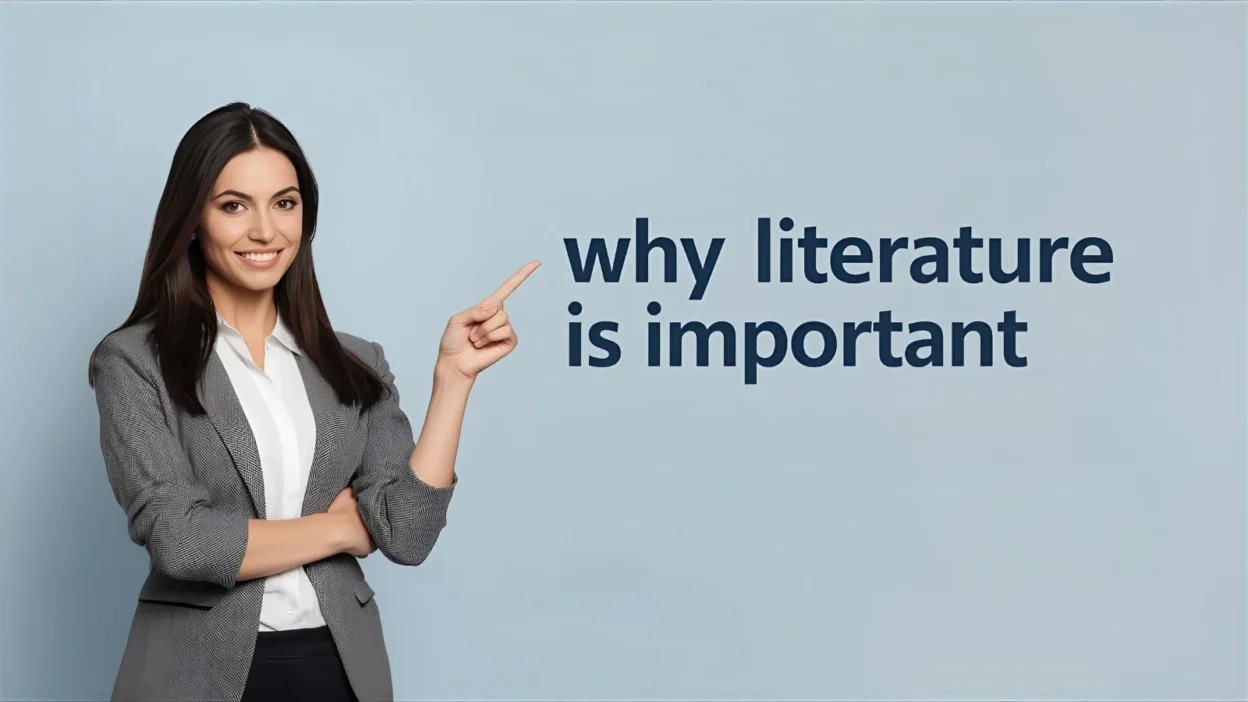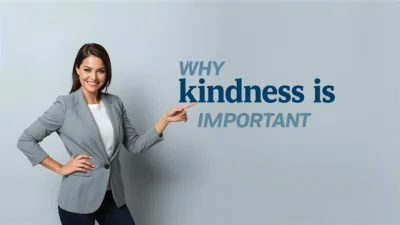Literature is more than stories and poems—it’s the mirror of human experience. From ancient epics to modern novels, literature captures emotions, ideas, and lessons that shape who we are. It helps us understand history, culture, and even ourselves.
This article explores why literature is important, its role in education, society, and personal growth, and the timeless value it brings to humanity.
Understanding Literature
📌 Definition:
Literature refers to written works—fiction, poetry, drama, and non-fiction—that use language artistically to express ideas, emotions, and knowledge.
👉 It’s not only entertainment—it’s a record of human thought and imagination across centuries.
Reasons Why Literature Is Important
- Preserves history and culture – literature records traditions and values.
- Encourages empathy – reading helps us understand others’ perspectives.
- Develops language skills – improves vocabulary and expression.
- Inspires creativity – sparks imagination and new ideas.
- Teaches moral lessons – stories often carry ethical messages.
- Supports education – literature is central to learning and critical thinking.
- Builds identity – connects people to their heritage.
- Entertains and relaxes – provides escape and enjoyment.
Literature in Daily Life
- Novels – take us into imaginary worlds.
- Poetry – expresses deep emotions in simple words.
- Plays – entertain while reflecting society.
- Essays and memoirs – share real experiences and knowledge.
💡 Example: Reading Harper Lee’s To Kill a Mockingbird teaches empathy, justice, and courage through storytelling.
The Psychology of Literature
Literature influences how we think and feel:
- Activates imagination by creating vivid mental images.
- Boosts emotional intelligence by connecting readers with characters.
- Provides therapy by allowing readers to process emotions.
- Builds resilience through inspiring stories of struggle and victory.
📖 “A reader lives a thousand lives before he dies… The man who never reads lives only one.” – George R.R. Martin
Types of Literature
- Fiction – novels, short stories.
- Non-fiction – biographies, essays.
- Poetry – lyrical, narrative, or epic.
- Drama – plays and scripts.
- Folklore and myths – traditional tales.
- Academic literature – research and scholarly works.
Idioms About Literature
- “Lost in a book” – deeply absorbed in reading.
- “Read between the lines” – understand hidden meaning.
- “An open book” – easy to understand person.
- “Don’t judge a book by its cover” – appearances can be misleading.
- “Turn the page” – start a new chapter in life.
Synonyms for Literature
| Synonym | Usage Example |
|---|---|
| Writings | Ancient writings give insights into cultures. |
| Texts | Classical texts are studied worldwide. |
| Works | Shakespeare’s works remain timeless. |
| Publications | The library holds rare publications. |
| Compositions | Poetic compositions reflect human emotions. |
Grammar Note: Literature in Use
- Uncountable noun – Literature is essential in schools.
- Countable in context – English and Arabic literatures are rich traditions.
- Adjective form – Literary works, literary criticism.
👉 Literature refers broadly to written art, while literary describes qualities or studies related to it.
Real-Life Examples of Literature’s Impact
- The Renaissance – literature sparked cultural rebirth in Europe.
- Uncle Tom’s Cabin – influenced attitudes toward slavery in America.
- The Quran, Bible, and Bhagavad Gita – literature shaping spiritual and moral values.
- Modern novels – inspire social movements and awareness campaigns.
Literature and Society
Literature shapes and reflects societies by:
- Preserving history – ancient texts record civilizations.
- Challenging injustice – books question power and inequality.
- Promoting education – literacy spreads knowledge.
- Fostering unity – national literature builds cultural pride.
- Encouraging dialogue – literature sparks debates and discussions.
🌍 Without literature, societies would lose their memory and creativity.
Challenges in Literature Today
- Decline in reading habits due to digital distractions.
- Censorship limiting free expression.
- Language barriers restricting global access.
- Commercialization favoring popular over meaningful works.
⚡ Solution: Encourage reading, translate classics, and promote libraries and digital platforms.
The Future of Literature
Literature is adapting to the digital age:
- E-books and audiobooks – make reading accessible everywhere.
- Interactive storytelling – merges literature with technology.
- Global literature – translations connect cultures.
- Educational technology – literature included in apps and learning platforms.
- Social awareness – books addressing climate, gender, and equality.
🚀 Literature will always evolve, but its essence—telling human stories—remains timeless.
FAQs About Literature
Q1: Why is literature important in education?
Because it develops critical thinking, creativity, and communication skills.
Q2: How does literature influence society?
It reflects values, challenges injustice, and preserves traditions.
Q3: Is literature only fiction?
No, it includes non-fiction, essays, and academic works too.
Q4: Can literature improve mental health?
Yes—reading reduces stress and provides emotional therapy.
Q5: Why is literature timeless?
Because human emotions, ideas, and struggles never lose relevance.
Conclusion
Literature is not just entertainment—it’s the soul of human expression. It preserves history, builds empathy, fuels imagination, and unites people across cultures and times. From ancient myths to modern novels, literature remains our most powerful tool for understanding life.
The strongest reason literature is important? Because it tells humanity’s story—past, present, and future.

Joy Root is a content writer at Whygenix.com, creating clear, engaging articles that explain complex ideas simply, helping readers understand why topics matter in everyday life and personal growth.




